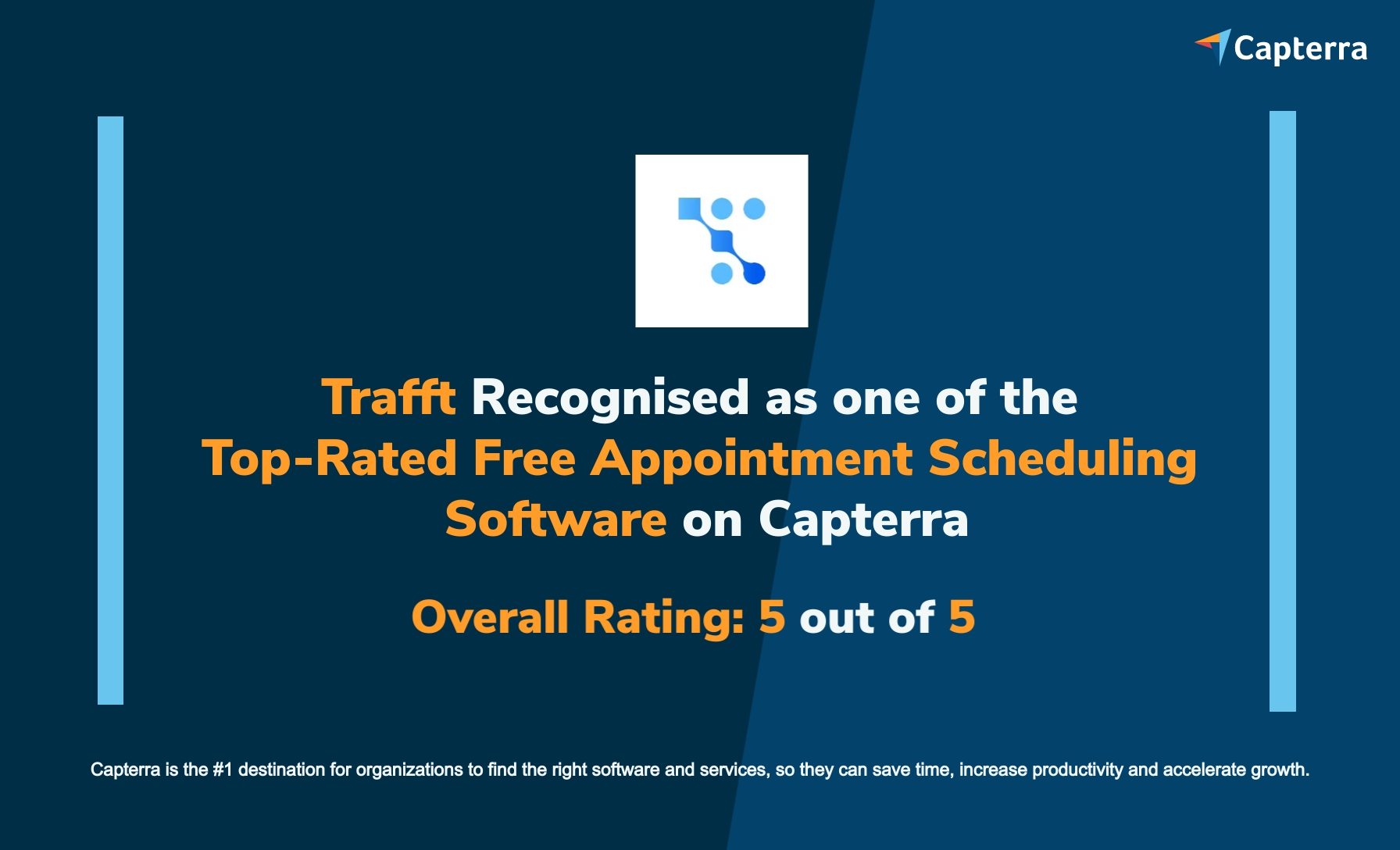The decision to start your own online consulting business is a powerful choice. Whether you’re driven by a passion to share your expertise or a desire for the flexibility and global reach that the online world offers, starting an online consulting business can be a transformative step in your life and career.
We’ve prepared a comprehensive guide to help you start an online consulting business and each section is strategically crafted to provide you with a roadmap to navigate the process of launching and growing your online consultancy. From the initial stages of honing your skills to the moment of promoting your consulting services online, we’ve got you covered.
What Is Online Consulting?
Online consulting is providing professional advice, guidance, or expertise through digital platforms and communication channels. This form of consulting allows you to offer individuals or businesses access to specialized knowledge and services remotely, eliminating the need for in-person interactions.
Online consulting leverages technologies such as video calls, emails, instant messaging, and collaborative tools to facilitate communication and deliver services. This approach provides flexibility for both consultants and clients, enabling them to connect regardless of geographical location. The rise of digital platforms has significantly expanded the reach of consulting services, making expertise more accessible and convenient for a diverse range of individuals and businesses.
Types of Online Consulting
Online consulting can serve a wide range of industries and fields, including but not limited to:
Business Consulting
Providing advice on various aspects of business strategy, operations, marketing, and management through online platforms.
Career Consulting
Assisting individuals in career planning, resume writing, job search strategies, and professional development through virtual consultations.
Health and Wellness Consulting
Offering guidance on fitness, nutrition, mental health, and overall well-being through online sessions.
Technology Consulting
Providing expertise in IT, software development, cybersecurity compliance, and other technical areas through virtual consultations.
Financial Consulting
Offering financial planning, investment advice, and budgeting assistance through online communication channels.
Education Consulting
Assisting students with academic planning, career guidance, and college admissions through virtual consultations.
Legal Consulting
Providing legal advice, document review, and guidance on legal matters through online platforms.
How to Start an Online Consulting Business in 14 Steps
- Understand the difference between online and traditional consulting
- Assess and improve your online consulting skills
- Market research and online consulting market fit
- Starting an online consulting business & choosing your niche
- Business structures to consider when starting an online consulting business
- Creating irresistible online consulting solution
- Figure out the booking process for your online consulting business
- Writing an online consulting business plan
- Business licenses and certifications
- Initial and ongoing expenses for online consulting businesses
- Set up prices with a healthy profit margin
- Promoting your online consulting business
- Selling your online consulting services
- Growing and scaling your consulting business
Understand the Difference Between Online and Traditional Consulting
Flexibility
Traditional Consulting: Typically involves face-to-face meetings and office-based interactions, limiting accessibility and flexibility for both the consultant and the client.
Online Consulting: Embraces the flexibility of virtual communication, allowing consultations to occur from anywhere in the world. This accessibility is a significant advantage for attracting a diverse clientele.
Global reach
Traditional Consulting: Primarily local or regionally focused, with limitations on reaching clients outside geographical boundaries.
Online Consulting: Breaks down geographical barriers, enabling you to tap into a global market. This expanded reach opens doors to a broader clientele and diverse business opportunities.
Cost efficiency
Traditional Consulting: Involves expenses related to office space, travel, and in-person meetings, potentially increasing the overall cost of operations.
Online Consulting: Reduces overhead costs, as virtual consultations eliminate the need for physical office space and extensive travel. This cost efficiency can be a strategic advantage for pricing your services competitively.
Technological integration
Traditional Consulting: Relies on traditional communication methods, with slower adoption of technology in some cases.
Online Consulting: Leverages digital tools, video conferencing, and collaborative platforms for seamless communication and information sharing. Embracing technology is a fundamental aspect of successful online consulting.
Client engagement
Traditional Consulting: Builds relationships through in-person interactions, which may be time-consuming and logistically challenging.
Online Consulting: Prioritizes virtual engagement, utilizing various online channels to maintain regular communication with clients. Effective online engagement strategies are crucial for client satisfaction and loyalty.
Marketing dynamics
Traditional Consulting: Relies on local networking, referrals, and traditional marketing methods.
Online Consulting: Opens avenues for digital marketing, content creation, and social media strategies to reach a broader audience. Understanding the nuances of online marketing is key to attracting and retaining clients in the digital space.
Assess and Improve Your Online Consulting Skills

Image by storyset on Freepik
The success of your online consulting business depends on your ability to continually assess and enhance your skills. Unlike traditional consulting, where face-to-face interactions dominate, the online consulting industry demands a unique set of capabilities to effectively connect, communicate, and deliver value to your clients. Here’s a comprehensive guide to assessing and improving your online consulting skills:
Communication
Assessment: Evaluate your ability to articulate complex ideas clearly in a virtual setting.
Improvement Strategies: Engage in virtual communication exercises, practice active listening, and seek feedback to refine your communication skills. Utilize online tools for effective collaboration and document sharing.
Tech-savviness
Assessment: Assess your comfort level with digital tools, video conferencing platforms, and collaborative software.
Improvement Strategies: Stay updated on the latest technologies relevant to your industry. Familiarize yourself with popular consulting apps and collaborative platforms. Consider investing time in training sessions or online courses to enhance your technical proficiency.
Virtual presence
Assessment: Reflect on how you come across in virtual meetings – your tone, body language, and overall virtual presence.
Improvement Strategies: Record and review your virtual interactions to identify areas for improvement. Practice maintaining a professional and engaging virtual presence. Experiment with lighting, background, and camera angles to enhance your on-screen image.
Active listening
Assessment: Evaluate your ability to actively listen and empathize with clients during virtual consultations.
Improvement Strategies: Practice mindful listening techniques. Use visual cues, such as nodding or appropriate facial expressions, to convey engagement. Incorporate reflective questioning to ensure a deep understanding of your clients’ needs.
Time management
Assessment: Analyze your time management skills in virtual consultations to ensure efficient use of both your and your client’s time.
Improvement Strategies: Set clear agendas for virtual meetings, allocate specific time slots for each agenda item, and adhere to the schedule. Utilize time-tracking tools if necessary to enhance your time management practices.
Adaptability
Assessment: Reflect on your ability to adapt to unexpected challenges or changes in a virtual consulting environment.
Improvement Strategies: Embrace a mindset of adaptability. Practice handling technical glitches smoothly and be prepared with contingency plans. Stay agile and open to adjusting your approach based on the unique needs of each client.
Building trust online
Assessment: Evaluate how effectively you build and maintain trust with clients in a virtual setting.
Improvement Strategies: Prioritize transparency and reliability. Consistently deliver on promises, communicate clearly, and demonstrate expertise to foster trust. Leverage case studies, testimonials, and an updated online presence to build credibility.
Market Research and Online Consulting Market Fit
Understanding your target market and ensuring your online consulting services align with market demands is crucial for your success. Effective market research lays the groundwork for a strong market fit, enabling you to tailor your services to meet the unique needs and preferences of your audience. Here’s a comprehensive guide to conducting market research and achieving a solid online consulting market fit:
Define your target audience
Identify and analyze the characteristics of your ideal clients. Consider factors such as industry, company size, location, and specific challenges they face.
Ensure your consulting services align with the needs and pain points of your target audience. Tailor your approach, expertise, and solutions to resonate with the identified audience.
Competitor analysis
Evaluate competitors offering similar online consulting services. Identify their strengths, weaknesses, and unique selling points.
Differentiate your services by addressing gaps or offering unique value propositions. Understand what makes your approach distinctive and appealing to potential clients.
Industry trends and demands
Stay informed about current trends, emerging technologies, and shifts in your industry or niche. For instance, understanding the landscape of pentest companies can provide valuable insights into cybersecurity consulting trends.
Align your services with industry trends and anticipate future demands. Position yourself as a thought leader by integrating cutting-edge insights into your consulting offerings.
Pricing analysis
Research the pricing models and structures adopted by competitors in the online consulting space. Set competitive yet profitable pricing for your services. Consider factors such as your expertise, the value you provide, and the expectations of your target market.
Client feedback and testimonials
Collect and analyze feedback from your current or past clients. Identify patterns, common challenges, and areas of satisfaction. Use client testimonials and feedback to refine your services. Showcase success stories to build credibility and demonstrate the effectiveness of your online consulting solutions.
Emerging niches and opportunities
Explore potential niches or underserved segments within your industry. Identify and capitalize on emerging niches or opportunities that align with your expertise. Be agile in adapting your services to cater to evolving market needs.
Online presence and visibility
Analyze the online presence and visibility of competitors and industry leaders. Optimize your online presence through a professional website, active social media engagement, and content marketing. Ensure potential clients can easily find and connect with your online consulting services.
Regulatory and compliance considerations
Understand any industry-specific regulations or compliance requirements. Ensure your online consulting services comply with relevant regulations. Communicate your commitment to compliance and ethical practices to build trust with potential clients.
Starting an Online Consulting Business & Choosing Your Niche
Selecting a niche for your online consulting business is a critical decision that shapes your brand, attracts your target audience, and distinguishes you from competitors. While the temptation to cast a wide net may be strong, specializing in a particular niche can lead to greater expertise, credibility, and client trust. But how do you choose a niche when starting an online consulting business?
- Assess Your Expertise and Passion:
Identify areas where your skills, knowledge, and passion converge. Assess your strengths and consider the aspects of your work that energize and inspire you.
- Identify Market Demand:
Evaluate the demand for various consulting niches within your industry. Look for gaps or underserved areas that align with your expertise.
- Consider Your Target Audience:
Define your ideal client persona. Understand their challenges, preferences, and specific needs. Tailor your niche to address these factors.
- Analyze Competitor Niches:
Investigate the niches of your competitors. Identify areas where you can differentiate yourself or provide a unique value proposition.
- Evaluate Long-Term Viability:
Consider the long-term viability of your chosen niche. Assess industry trends, emerging technologies, and shifts that might impact the demand for your services.
- Passion vs. Profitability:
Find a balance between your passion and the profitability of the chosen niche. While passion is essential for motivation, ensuring a viable market is equally important.
- Specialization for Credibility:
Specializing in a niche allows you to build deep expertise. Clients often prefer consultants who demonstrate a profound understanding of their specific challenges.
- Align with Your Brand:
Ensure your chosen niche aligns with your overall brand identity. Consistency in messaging and offerings strengthens your brand in the minds of clients.
- Test Your Niche:
Before fully committing, consider testing your niche with pilot projects or a smaller client base. Use feedback to refine your approach.
- Long-Term Commitment:
Recognize that building a strong presence in your chosen niche takes time. Demonstrate commitment and consistency in delivering exceptional value.
- Resist the Urge to Diversify Too Soon:
Avoid the temptation to diversify too quickly. Establish yourself in your chosen niche before considering expansion.
- Flexibility:
While specializing, remain adaptable. Be open to evolving within your niche based on industry changes and client feedback.
- Branding Strategies:
Craft your brand positioning strategy around your niche. Use targeted language and visuals that resonate with your specific audience.
Business Structures to Consider When Starting an Online Consulting Business
When starting your online consulting business, one crucial aspect to consider is the business structure that aligns with your goals and vision. Choosing the right business structure is a pivotal decision that shapes the legal, financial, and operational aspects of your online consulting business. It’s advisable to thoroughly evaluate the nuances of each model, considering factors such as personal liability, regulatory compliance, and your long-term business objectives. By aligning your business structure with your aspirations, you set the foundation for a resilient and strategically sound consulting business.
Here are some business models to contemplate when determining the optimal structure for your online consulting business:
Sole proprietorship
The sole proprietorship model stands out as the simplest and most straightforward choice for solo consultants. With this structure, you enjoy the ease of setup and retain full control of your business. However, it’s essential to note that as a sole proprietor, you are personally liable for any business debts and legal issues that may arise.
Limited Liability Company (LLC)
Opting for an LLC introduces an additional layer of personal liability protection while maintaining the flexibility reminiscent of a sole proprietorship. This structure is a popular choice for many online consulting businesses, offering a balance between protection and operational freedom.
Partnership
In situations where a business partnership is on the horizon, a partnership structure becomes relevant. There are two primary types: general partnerships and limited partnerships, each carrying distinct legal implications. Assessing the nature of your collaboration will guide you in choosing the most suitable partnership structure. It’s best to opt in for this structure if you have someone who will start an online consulting business with you.
Corporation
Corporations, while providing robust personal liability protection, come with more intricate administrative and regulatory requirements. This business structure is better suited for larger consulting firms or businesses with multiple owners. Before opting for a corporation, carefully consider the complexity it adds to your business operations.
Nonprofit organization
For consulting businesses with a charitable or educational focus, the nonprofit organization structure might be a great choice. Establishing a nonprofit entity, however, comes with specific regulations and compliance requirements. On the flip side, it offers the advantage of tax benefits for organizations aligned with a broader social or educational mission.
Creating Irresistible Solutions When You Start Online Consulting
Crafting a compelling and irresistible online consulting solution is crucial for capturing the attention of potential clients and establishing a strong value proposition. Your solution should not only address the specific needs of your target audience but also stand out in a competitive market. We’ve prepared a step-by-step guide to help you achieve this:
Understand Client Pain Points:
Conduct interviews or surveys to understand the challenges and pain points your target audience faces. This insight forms the foundation for your solution.
Tailor Your Expertise:
Align your expertise with the identified pain points. Tailor your consulting services to directly address the unique needs of your target audience.
Unique Value Proposition (UVP):
Clearly articulate your Unique Value Proposition. What makes your online consulting solution stand out? How does it uniquely benefit clients compared to competitors?
Clear and Measurable Outcomes:
Define clear and measurable outcomes that clients can expect from your consulting services. Tangible results enhance the appeal of your solution.
Incorporate Technology:
Leverage technology to enhance the effectiveness of your solution. Explore tools, platforms, and consulting scheduling software that can streamline processes and deliver added value.
Scalability and Flexibility:
Design your consulting solution to be scalable. Ensure that it can adapt to the growth and changing needs of your clients.
Transparent Processes:
Clearly communicate your processes and methodologies to clients. Transparency builds trust and helps clients understand the value they’ll receive.
Personalization:
Offer personalized consulting solutions that cater to the specific requirements of each client. A one-size-fits-all approach may not resonate as strongly.
Proven Methodologies:
Highlight case studies and success stories that demonstrate the effectiveness of your methodologies. Social proof enhances the credibility of your solution.
Improvement:
Emphasize your commitment to continuous improvement. Demonstrate your willingness to adapt your solution based on client feedback and evolving industry trends.
Competitive Pricing Structure:
Structure your pricing in a way that reflects the value your consulting solution provides. Emphasize the return on investment clients can expect.
Collaborative Approach:
Foster a collaborative approach where clients feel actively involved in the consulting process. Collaboration enhances engagement and client satisfaction.
Streamlined Onboarding Process:
Develop a streamlined onboarding process that quickly integrates clients into your consulting services. A smooth start sets a positive tone for the entire engagement.
Educational Components:
Integrate educational components into your solution. Empower clients with the knowledge and tools they need for ongoing success beyond the consulting engagement.
Flexible Delivery Formats:
Offer flexibility in the delivery format of your consulting services. Whether through video calls, webinars, or asynchronous communication, adapt to the preferences of your clients.
Figure Out the Booking Process for Your Online Consulting Business
A streamlined and user-friendly booking process is essential for attracting clients and ensuring a positive experience. Your booking system should be efficient, easy to navigate, and provide clear communication.
Trafft, consulting booking software, stands out as the top choice based on customer reviews, feature-to-cost ratio, customization, and flexibility.
Trafft’s platform perfectly blends basic and advanced features designed to streamline scheduling and enhance your online consulting business operations. It goes beyond mere appointment setting, providing essential business metrics, creating high-converting booking websites, and optimizing repetitive tasks. The result is a seamless and efficient user experience that minimizes errors, eliminates no-shows, and ensures an organized and efficient schedule.
The advanced features of Trafft further elevate its functionality and flexibility. Enjoy
- Multi-location scheduling,
- Multi-language capabilities,
- Recurring appointments,
- Group bookings,
- Easy rescheduling,
- Appointment reminders,
- Highly customizable booking forms with templates.
These features empower you to tailor the platform to your specific needs.

Want to grow your online consulting business? Choose Trafft!
Trafft doesn’t stop there; it offers powerful integrations with popular tools like MailChimp, Google Analytics, Stripe, PayPal, and Zapier.
- Native integrations with Zoom and Google Meet facilitate scheduling virtual meetings.
- Insightful business dashboards provide essential metrics for data-driven decisions,
- Customer notes enhance the overall customer experience.
Integrated payment processing ensures timely payments, reducing the risk of no-shows and contributing to effective financial management. Trafft allows flexibility in sharing your booking page, whether through a QR code, an embeddable form on your website, or a simple link.
Despite its feature-rich offerings, Trafft remains budget-friendly, with plans tailored to fit the needs and budgets of all online consulting businesses.
It even provides an unparalleled free plan with superior features. Trafft’s pricing starts from $29 per month for paid plans, with a free option available for up to 5 members.
Trafft’s stellar ratings speak volumes about its effectiveness:
- 5/5 on Capterra
- 4.7 on G2
- Excellent on TrustPilot
- 5/5 on GetApp
Sign up for free now and experience Trafft’s full power!

Writing an Online Consulting Business Plan
A well-structured online consulting business plan is a roadmap that guides your online consulting business toward success. It serves as a strategic document outlining your goals, target market, financial projections, marketing strategy, and operational plans. But how do you write a business plan when starting an online consulting business? We’ve broken it down into steps:
- Executive Summary:
Provide a concise overview of your online consulting business. Include your mission statement, vision, and a brief summary of your business concept. - Business Description:
Detail the nature of your online consulting services. Clarify your niche, target market, and the unique value proposition that sets your business apart. - Market Analysis:
Offer an in-depth analysis of the online consulting industry. Include market trends, growth potential, and key factors influencing the industry. Provide insights into their demographics, needs, and preferences. Explain how your services meet their specific requirements. Identify their strengths, weaknesses, and strategies. Showcase how your business will differentiate itself. - Services and Solutions:
Outline your online consulting services in detail. Specify the problems you address, the solutions you provide, and the benefits clients can expect. - Business Structure:
Define the legal structure of your business (e.g., sole proprietorship, LLC, corporation). Clarify ownership and management roles. - Marketing and Sales Strategy:
Describe your target market and how you plan to reach and engage with them. Detail your marketing channels, messaging, and promotional activities. Outline how you will convert leads into clients, including pricing, sales tactics, and negotiation strategies. - Financial Projections:
Specify your revenue model. Outline how you will generate income, whether through hourly rates, project fees, or subscription models. Provide detailed financial projections, including income statements, cash flow statements, and balance sheets. Consider a breakdown for the first few years. - Funding Requirements:
Itemize your startup costs, including equipment, software, marketing expenses, and any initial investments required. Identify potential sources of funding, such as personal savings, loans, investors, or grants. Explain how the funds will be utilized. - Operations Plan:
Describe the operational workflow of your online consulting business. Detail how consultations will be conducted, project management, and client communication. Outline the technology and tools you’ll use to deliver your services efficiently. Address data security and privacy considerations. - Risk Analysis:
Identify potential risks and challenges that could impact your business. Develop contingency plans to mitigate these risks. - Milestones and Goals
Set realistic and measurable milestones for your online consulting business. Establish both short-term objectives and long-term strategic goals. - Appendices:
Include any supporting documents, such as resumes of key team members, market research data, or additional financial projections. - Executive Summary (Revisited):
Revisit the executive summary, summarizing the key points highlighted in your business plan. Emphasize your business’s unique value proposition and growth potential.
Business Licenses and Certifications
Ensuring that your online consulting business complies with legal requirements and industry standards is crucial for building trust with clients and avoiding potential legal issues. Here’s a checklist for starting an online consulting business to help you navigate this process:
- Local Regulations: Research the business licensing requirements specific to your location. Different cities, counties, and states may have varying regulations for online businesses.
- Industry Regulations: Check if there are industry-specific licenses or certifications required for online consulting in your niche. This may include professional licenses or certifications related to your expertise.
- Employer Identification Number (EIN): Obtain an EIN from the IRS, especially if you plan to hire employees or operate as a corporation or LLC. This is also required for certain tax filings.
- State Registration: Register your business with the appropriate state authorities. This may involve filing documents with the Secretary of State’s office, especially if you’re forming an LLC or corporation.
- Industry Associations: Explore whether there are professional certifications relevant to your consulting niche. Earning certifications can enhance your credibility and demonstrate expertise.
- Sales Tax Registration: If your online consulting services involve selling tangible goods or certain types of services, you may need to obtain a sales tax permit. Check the requirements in your jurisdiction.
- Home Business Regulations: If you operate your online consulting business from home, check local regulations regarding home-based businesses. Some areas may require a home business permit.
- Online Business Regulations: Familiarize yourself with laws specific to online businesses, such as data protection and privacy regulations. Ensure that your website complies with relevant online business laws.
- Insurance Requirements: Consider obtaining professional liability insurance to protect your business from legal claims related to errors, omissions, or negligence in your consulting services.
- Stay Informed: Keep track of the renewal requirements for your licenses and certifications. Stay informed about any changes in regulations that may affect your business.
- Legal Advice: Consult with a business attorney or legal advisor to ensure that you understand all the necessary licenses and certifications for your specific online consulting business. They can provide guidance tailored to your situation.
- Document Compliance: Keep detailed records of all your licenses, certifications, and permits. This documentation is essential for demonstrating compliance during audits or legal inquiries.
- Operational Integration: Integrate compliance with licenses and certifications into your standard operating procedures. This ensures ongoing adherence to legal and industry standards.
Obtaining the required business licenses and certifications is a critical aspect of establishing a legal and trustworthy online consulting business. By proactively addressing these requirements, you demonstrate your commitment to professionalism, build credibility with clients, and mitigate the risk of legal complications.
Initial and Ongoing Expenses for Online Consulting Businesses
Understanding the financial aspects when starting your online consulting business is essential for effective budgeting and sustainable operations. Both initial and ongoing expenses play a crucial role in determining your business’s profitability and long-term success.

Image by storyset on Freepik
Let’s see the initial and ongoing expenses you can expect when starting an online consulting business:
Initial expenses
Technology and equipment
- Computers and Laptops: Invest in reliable computers or laptops for yourself and your team.
- High-Speed Internet: Ensure a stable and fast internet connection for virtual consultations.
- Software and Tools: Purchase or subscribe to essential software for communication, project management, and collaboration.
Website development
- Domain Registration and Hosting: Secure a domain name for your website and choose a hosting plan suitable for small businesses first.
- Website Design: Invest in professional web design workflow to create a visually appealing and user-friendly online presence.
Marketing and branding
- Logo Design: Design a professional logo that represents your brand.
- Marketing Collateral: Invest in business cards, brochures, or other marketing materials.
- Digital Marketing: Allocate a budget for online advertising, social media marketing, and content creation.
Licensing and certifications
- Business Licenses: Pay fees associated with obtaining necessary business licenses.
- Certifications: Budget for any professional certifications relevant to your consulting niche.
Legal and professional services
- Business Registration: Cover costs associated with registering your business entity.
- Legal Consultation: Seek advice from legal professionals to ensure compliance with regulations.
Workspace setup
- Home Office Expenses: If working from home, invest in a comfortable and well-equipped home office space.
- Co-working Space: Consider co-working space fees if you choose to work from a shared office.
Insurance
- Professional Liability Insurance: Purchase insurance to protect against legal claims related to your consulting services.
Ongoing Expenses
Technology and software
- Subscription Renewals: Budget for recurring costs of software and tools.
- Tech Upgrades: Plan for periodic upgrades or replacements of hardware and software.
Marketing and advertising
- Digital Marketing Campaigns: Allocate funds for ongoing digital marketing efforts.
- Content Creation: Budget for creating and promoting content to maintain an active online presence.
Professional memberships
- Industry Associations: Pay for memberships in professional associations relevant to your niche.
Training and development
- Budget for ongoing training or courses to stay updated in your field.
Workspace expenses
- Utilities: Cover ongoing expenses for utilities if you have a dedicated workspace.
- Rent or Co-working Fees: If applicable, continue budgeting for workspace rent or co-working fees.
Insurance premiums
- Renewal Premiums: Continue to pay premiums for professional liability insurance and other relevant coverage.
Set up Prices With a Healthy Profit Margin
Setting prices when starting your online consulting services requires careful consideration to ensure profitability while remaining competitive in the market. Here’s a detailed guide to help you set up prices with a healthy profit margin:
Determine costs
- Fixed Costs: Identify all fixed costs associated with running your online consulting business. This includes software subscriptions, website maintenance, insurance, and any other consistent expenses.
- Variable Costs: Consider variable costs that may change based on the number of consultations, such as marketing expenses or fees associated with online platforms.
Calculate the desired profit margin
- Profit Goals: Determine the profit margin you aim to achieve. This should cover your costs, contribute to business growth, and provide a return on your investment of time and resources.
- Competitive Analysis: Conduct a competitive analysis to understand the pricing structures of similar online consulting services. Use this information as a reference point but ensure your prices align with your unique value proposition.
Value-based pricing
- Client Value: Consider the value your consulting services bring to clients. Price your services based on the impact and results clients can expect rather than solely on your costs.
- Specialized Expertise: If you possess specialized expertise or offer unique solutions, factor this into your pricing strategy. Clients often recognize and are willing to pay for specialized knowledge.
Service packaging
- Tiered Packages: Offer tiered packages that cater to different client needs. Each package can include varying levels of service, allowing clients to choose an option that best fits their requirements and budget.
- Custom Solutions: Provide options for custom solutions or additional services beyond your standard packages. This allows you to upsell and capture additional revenue.
Hourly vs. project-based pricing
- Hourly Rate: Calculate an hourly rate that takes into account your desired profit margin, costs, and the perceived value of your services.
- Project-Based Pricing: For specific projects or ongoing consulting engagements, consider project-based pricing. Estimate the time and resources required and set a fixed fee for the entire project.
Consider market demand
- Demand-Driven Pricing: Assess market demand for your services. If demand is high, you may have the flexibility to set higher prices. Conversely, if you’re entering a competitive market, consider pricing strategies that differentiate your services.
- Promotional Pricing: Consider introductory or promotional pricing to attract initial clients and build a client base. Clearly communicate that this pricing is temporary.
Factor in business growth
- Scalability: Ensure that your pricing allows for scalability as your business grows. Consider how pricing adjustments may be necessary as your client base expands or as you offer additional services.
Pricing psychology
- Psychological Pricing: Use pricing strategies that appeal to the psychology of buyers. For example, pricing services at $99.99 may be more attractive than $100.
- Anchoring: Consider offering a higher-priced option alongside your main offering. This can anchor the perceived value of your main service and make it more appealing.
Competitive differentiation
- Value Proposition: Emphasize your unique value proposition in your pricing. Clearly communicate what sets your services apart from competitors and justifies your pricing.
Promoting Your Online Consulting Business
Effectively promoting your online consulting business is crucial for attracting clients and establishing a strong online presence. Here are some consultant marketing strategies to get you started:
- Build a professional website with a responsive design for optimal user experience. Clearly communicate services, expertise, and unique value propositions. Include clear calls to action prompting visitors to schedule consultations, subscribe to newsletters, or engage with your content. To achieve this seamlessly, consider utilizing the best responsive website builders available to ensure your site looks great and functions well across various devices.
- Incorporate content marketing with regular high-quality blog posts addressing client pain points, industry trends, and solutions. Offer downloadable resources such as ebooks and whitepapers showcasing your expertise. Create engaging video content, including tutorials, client testimonials, or thought leadership pieces.
- Utilize social media marketing by selecting platforms where your target audience is most active. Maintain a regular posting schedule with a mix of curated content, industry updates, and your insights. Actively engage with your audience through comments, direct messages, and participation in relevant discussions.
- Implement email marketing by building a subscriber list and encouraging website visitors to subscribe for updates, tips, and exclusive offers. Segment your email list based on client preferences for personalized communication. Use automated email campaigns for onboarding, lead nurturing, and client retention.
- Incorporate search engine optimization (SEO) by identifying relevant keywords related to your services. Optimize website content for search engines, including meta tags, headers, and image alt text. Seek opportunities for backlink building from reputable websites in your industry.
- Leverage paid advertising through Google Ads for targeted campaigns and social media ads to reach a wider audience. Implement retargeting campaigns to engage with website visitors who didn’t convert initially.
- Explore networking and partnerships by attending virtual industry events, webinars, and conferences. Collaborate with other professionals or businesses in related industries to expand your reach.
- Showcase success stories through client testimonials and case studies on your website to build credibility. Request permission from satisfied clients to share their success stories in your marketing materials.
- Host educational webinars or virtual workshops to showcase your expertise and provide value. Include interactive Q&A sessions to engage with participants and address their specific questions.
- Implement a referral program that incentivizes existing clients or partners to refer new clients to your business. Clearly communicate the terms and rewards to encourage participation.
- Monitor and analyze your marketing efforts using analytics tools to track website traffic, conversion rates, and social media engagement. Regularly review analytics data and adjust your strategies based on what is most effective.
Selling Your Online Consulting Services
Successfully selling your online consulting services involves a strategic approach that emphasizes communication, value proposition, and building strong client relationships. Now is the time to put all the above together and sell your online consulting services right from the start:
- Clearly articulate the unique value your consulting services offer to clients.
- Emphasize the benefits and outcomes clients can expect from working with you.
- Tailor your value proposition to address specific pain points and challenges your target audience faces.
- Maintain a professional and up-to-date website that showcases your expertise and services.
- Optimize your LinkedIn profile and other professional profiles to reflect your consulting experience and achievements.
- Leverage social media platforms to share valuable content, engage with your audience, and build credibility.
- Focus on understanding the unique needs and challenges of each potential client.
- Ask open-ended questions to gather information and uncover the client’s pain points.
- Tailor your sales pitch based on the client’s specific situation, demonstrating how your services provide solutions.
- Share client testimonials, success stories, and case studies to showcase your track record.
- Highlight your industry knowledge, certifications, and any relevant achievements.
- Be transparent about your approach, processes, and what clients can expect when working with you.
- Clearly articulate the services you provide and the value they bring to clients.
- Offer tiered packages or customizable solutions to accommodate different client needs and budgets.
- Provide detailed information on the scope, deliverables, and timelines for your consulting services.
- Develop strong communication skills to convey complex ideas in a clear and understandable manner.
- Listen actively to client concerns and questions, demonstrating empathy and understanding.
- Use language that resonates with your target audience, avoiding jargon that may be unfamiliar to clients.
- Anticipate common objections and prepare persuasive responses.
- Address concerns proactively, demonstrating how your services address specific client needs and challenges.
- Provide evidence or examples that alleviate doubts and build confidence in your ability to deliver results.
- Craft a compelling sales pitch that highlights your expertise, services, and value proposition.
- Create visually appealing presentations that clearly convey information and engage your audience.
- Practice your pitch to ensure confidence and smooth delivery during client interactions.
- Leverage virtual meeting platforms for sales presentations and consultations.
- Utilize video conferencing to establish a more personal connection with potential clients.
- Share relevant documents and visuals during online presentations to enhance communication.
- Introduce limited-time promotions or discounts to create a sense of urgency.
- Clearly communicate the promotional period and any specific conditions for eligibility.
- Develop a systematic follow-up process to nurture leads and maintain communication.
- Send personalized follow-up emails or messages that address any remaining questions or concerns.
Effectively selling your online consulting services involves a combination of strategic planning, effective communication, and a client-focused approach. By consistently refining your sales strategies and staying attuned to client needs, you can build a robust client base and position your consulting business for long-term success.
Growing and Scaling Your Consulting Business
Growing and scaling your online consulting business is a process that involves strategic planning, efficient operations, and continuous innovation. What should you do?
Start by evaluating your current business performance. Conduct a thorough assessment, considering financial metrics, client satisfaction, and operational efficiency. Identify areas of strength and opportunities for improvement.
The next thing you should do is define clear growth objectives for your online consulting business based on performance. This may involve increasing client acquisition, expanding service offerings, or entering new markets. Set measurable and realistic targets for key performance indicators (KPIs).

Image by storyset on Freepik
It’s a good idea to consider diversifying your service offerings to cater to a broader audience. Introduce complementary services aligned with your expertise and emerging client needs.
Identifying and researching potential new markets where there is demand for your consulting services is crucial. Adapt your marketing and communication strategies to resonate with the specific needs of these markets.
Building strategic partnerships with other businesses or professionals in related industries is also a great idea to help you grow your online consulting business. Collaborate with complementary service providers to offer bundled solutions or joint ventures.
Once you get increased sales, it’s time to implement scalable processes that can accommodate an increasing number of clients and projects. Streamline workflows, automate repetitive tasks, and optimize operational efficiency.
Assessing your workload and hiring additional team members to support business growth is the perfect next step. Identify key roles that can contribute to your business’s success, such as consultants, project managers, or marketing specialists.
Remember: prioritize client satisfaction and retention to foster long-term relationships. Implement client loyalty programs, gather feedback, and continuously improve your services based on client input.
And if you want to scale it’s time to increase your marketing efforts to reach a wider audience. Invest in branding to create a strong and memorable identity for your consulting business.
Once you get enough sales, focus on enhancing your client referral program to incentivize existing clients to refer new business. Consider offering special promotions or discounts to clients who refer successful leads.
It’s important to maintain a close eye on your financial health, regularly reviewing income, expenses, and profit margins. Set aside funds for business expansion and unforeseen challenges. Gather feedback from clients and use it to adapt and improve your services. Be responsive to market feedback and adjust your strategies accordingly.
Final Thoughts on Starting an Online Consulting Business
The successful start of an online consulting lies in a blend of expertise, strategic planning, client focus, and adaptability. You should embrace challenges as opportunities, celebrate milestones, and foster a forward-thinking mindset to be successful in the online consulting industry. As we’ve explored, the key pillars of success are a fusion of expertise and passion, informed market research, and a carefully chosen niche that aligns with both your skills and market demand.
It’s not only about starting an online consulting business, it’s about building a resilient and successful consulting practice.
Ready to Dive in for More Fun?
Check out these extra resources to uncover all the details about the consulting business:
- How to Become an Independent Consultant
- The Ultimate Guide to Writing a Consulting Business Plan
- Management Consulting vs. Strategy Consulting: What’s the Difference?
- Boutique Consulting Firms: Everything You Need to Know
- Online Consulting: Everything You Need to Know to Be Successful
- How to Become a Tax Consultant and Be Great at It
- What is a Business Automation Consultant and How You Can Be One
- How to Start a Marketing Consulting Business



